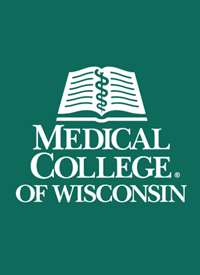Medical College of Wisconsin Pediatric Infectious Disease Fellowship
Welcome! Thank you for your interest in the Medical College of Wisconsin (MCW) Pediatric Infectious Disease Fellowship. Our goal is to provide comprehensive clinical and research training in pediatric infectious diseases that is tailored to the fellow’s previous experience, individual interests, and aspirations, in a collegial and nurturing environment that fosters intellectual curiosity, and prepares them to excel as academic researchers and clinicians. The vast resources of MCW provide ample opportunity for fellows seeking academic excellence in infectious diseases.
These opportunities include but are not limited to the Clinical and Translational Science Institute (CTSI), Center for Infectious Disease Research, Graduate School Public Health programs, and the Office of Global Health.
A Message from Our Program Director
 Welcome to our fellowship webpage! We love our pediatric infectious disease group and Children’s Wisconsin. We also really value our personal connections with our fellows. It is incredibly important that we work with each of our fellows to make sure that we help you to achieve your dream job. This may include matching you with faculty, mentors, and programs to help you reach your pre-determined career goals. But this may also be helping you get started within the field by exploring the many different aspects of academic medicine and pediatric infectious diseases to help you find what really interests you. Please look around our site and reach out to us for any questions you may have.
Welcome to our fellowship webpage! We love our pediatric infectious disease group and Children’s Wisconsin. We also really value our personal connections with our fellows. It is incredibly important that we work with each of our fellows to make sure that we help you to achieve your dream job. This may include matching you with faculty, mentors, and programs to help you reach your pre-determined career goals. But this may also be helping you get started within the field by exploring the many different aspects of academic medicine and pediatric infectious diseases to help you find what really interests you. Please look around our site and reach out to us for any questions you may have.
This fall (Match 2025 for upcoming July 2026 positions), our program is only recruiting for combined fellows (med/peds ID or others). We will open our match back up for categorical pediatric infectious disease fellows as well starting Match 2026 (for July 2027 positions).
Katie Ryan, MD, MPH
Fellowship Director, Pediatric Infectious Disease
Meet Our Fellowship Directors
Katie Ryan, MD, MPH, and Michelle Mitchell, MD, our fellowship directors, discuss our program, our institutions, and living and training in Milwaukee.
As a Pediatric Infectious Disease fellow you will...
- Become competent in evaluating and treating children with common and rare infectious diseases
- Learn from attendings who are national and international experts in the field of Infectious Disease
- Work with other subspecialties at a premier children’s hospital
- Establish a foundation for a successful career in Infectious Diseases tailored to your interests and ambitions
- Receive mentoring in your area of research, present your research in scientific meetings, and get training in submission of grant proposals and preparation of manuscripts
About Our Institutions
Medical College of Wisconsin (MCW)
The Medical College of Wisconsin brings together the most inquisitive minds in science, medicine, education and community engagement to solve the toughest challenges in health and society today. Academic medicine is at the core, where scientists, physicians and students work hand-in-hand with the community to ask the questions no one else is and fuel the continuous cycle of knowledge that’s shaping the future of medicine.
Children’s Wisconsin
Children’s Wisconsin is the region’s only independent health care system dedicated solely to the health and well-being of children. We offer a wide range of care and support for children of all ages. Our services include medical care, dental care, child and family counseling, foster care, adoption, social services, child advocacy and injury prevention.
About Our Fellowship
Our People
Our Places and Spaces
My fellowship training at Children’s Wisconsin was more than I expected. The case load was manageable while exposing me to a wide array of pathology. The faculty were invested in my research and education and I’ve learned so much from them! I couldn’t be happier with the training I’ve received.
Brittany Player, DO (previous fellow)
Current Fellows

Storm Dorrough, MD
Pediatric Infectious Diseases Fellow, 2023-2026

Zachary Telfer, MD
Adult and Pediatric Infectious Diseases Fellow, 2023-2027

Charlotte Formeller, MD
Pediatric Infectious Diseases Fellow, 2024-2027

Kathleen Burns, MD
Pediatric Infectious Diseases Fellow, 2025-2027
Our Team

Kathleen Ryan Loker, MD, MPH
Assistant Professor; Director, Pediatric Infectious Disease Fellowship; Education Pillar Lead, Global Child Health Program

Michelle Mitchell, MD
Associate Professor; Associate Director, Pediatric Infectious Disease Fellowship

Emma Kiiskila
Program Coordinator II
Contact Us
Pediatric Infectious Diseases
MCW Department of Pediatrics
P.O. Box 1997
Milwaukee, WI 53201-1997
(414) 337-7093 (fax)
Kathleen Ryan Loker, MD, MPH
Program Director
(414) 337-7070
(414) 337-7093 (fax)
















